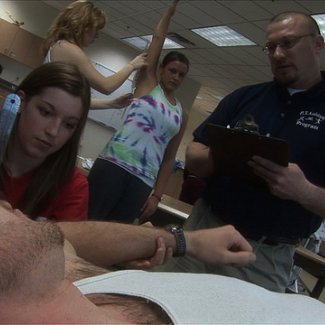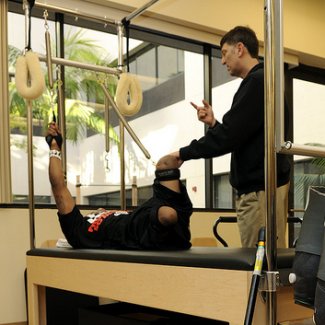
Occupational therapists typically are responsible for reviewing the patient’s medical history, observing the patients, establishing an individual treatment plan, demonstrating exercises to relieve pain, educating patients and their families to accommodate the condition, and assess patient progress.
Occupational therapists are vital for the treatment of patients with permanent disabilities that need assistance performing everyday tasks.
Salary
According to the May 2012 records from the Bureau of Labor Statistics, the average occupational therapist salary is $76,400 per annum. The 105,540 occupational therapists employed in the United States made a mean hourly wage of $36.73. The bottom ten percent in the profession earns $50,500 annually, while the top ten percent makes an average $107,070 each year.
Occupational therapists employed in general medical and surgical hospitals earn around the average of $77,570, but those that work in elementary or secondary schools make significantly less than the average at $68,440 annually. Occupational therapists receive the highest salaries in home health care services at $86,850, as well as nursing home facilities at an average $83,180. Occupational therapists make the most in Nevada, with a mean annual salary of an outstanding $105,290.
Work Environment
An estimated 48 percent of all occupational therapists nationwide are employed in physical, occupational, and speech therapy offices. Others find employment in audiologist offices, hospitals, elementary or secondary schools, nursing homes, individual and family services, and home health services. Many are employed in multiple facilities and must travel from one to another. Most occupational therapists work full time, although 30 percent worked part-time schedules. In order to accommodate for patients’ needs and schedules, some occupational therapists may also work weekend or night hours.
Employment for occupational therapists is expected to soar much faster than the average of all other professions, at 33 percent between 2010 and 2020. Occupational therapy will continue to increase in demand as the large baby boomer population ages and remain active later in life. Occupational therapists will continue to be a vital component of the treatment plan for individuals with disabilities and illnesses through extensive therapy.












Leave a Reply